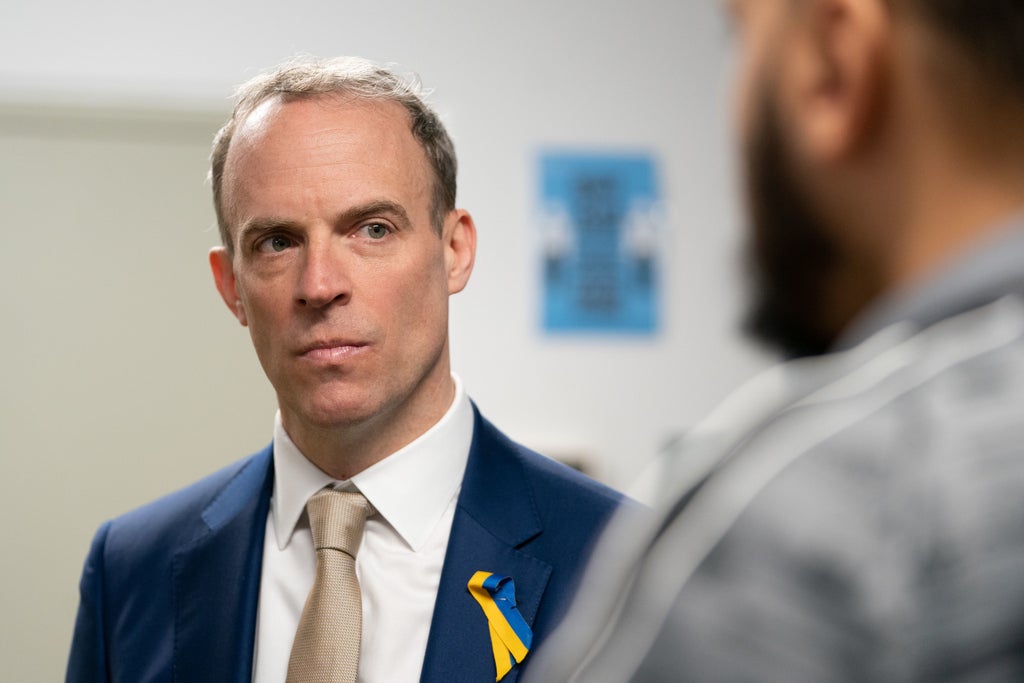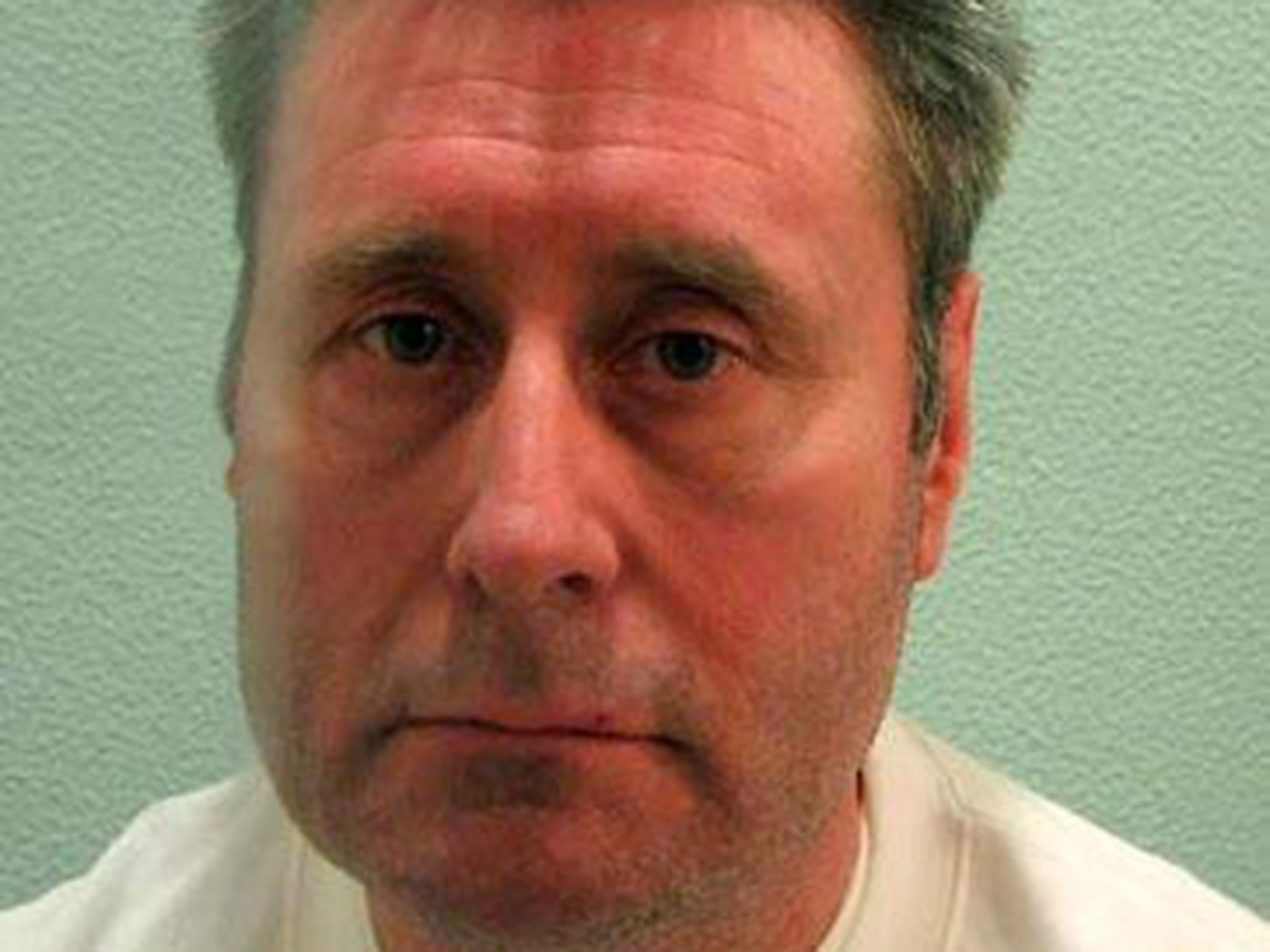
Dominic Raab will have to bring in new laws to give himself the power to stop the release of prisoners he deems dangerous, it has emerged.
He told the House of Commons he would “introduce ministerial oversight over any decision to release any offender in the top-tier cohort”, including murders, rapists, terrorists and child killers.
“The justice secretary will have the power to refuse release, subject to judicial challenge, on very clearly prescribed grounds,” Mr Raab added. “I believe that is warranted as an extra check and safeguard to protect the public.”
The Independent has learned that the change will require new legislation, which has not yet been drafted. No time estimate has been given for the introduction of the law.
Mr Raab also told MPs that the reforms cannot be pursued “without our Bill of Rights” - a controversial planned law that would replace the Human Rights Act.
Experts and criminal justice groups have questioned what expertise politicians will have to overturn decisions by the Parole Board, and raised fears of “grandstanding” over notorious inmates regardless of the risk they pose.
Steve Reed, Labour’s shadow justice secretary, said: “The public will rightly be worried about the lack of detail about these reforms and the delays involved in legislating for them - victims have been failed by this Government for the last 12 years and they should not wait any longer to have their voices heard.
“If the Conservatives are serious about public safety and the rights of victims, Mr Raab needs to come forward with a clear timetable for any legislation and ensure victims and communities that their interests are being upheld.”
Other aspects of the government’s proposed reforms will also require primary legislation, including changes to the statutory test that governs when people can be released from jail.
Some parts, such as plans to allow victims to attend parole hearings, do not need new laws and may be enacted more quickly.
The Ministry of Justice said the changes would “put public protection back at the heart of the parole system” but experts questioned that claim.
Andrea Coomber, chief executive of the Howard League for Penal Reform, said: “The parole process is already designed to prioritise public protection, by providing expert oversight as to when and how a person who has committed a serious offence can be safely released.
“Increasing interference from ministers threatens to distort the whole purpose of parole, which is about assessing current risk and not re-judging the original offence. There is a danger that these measures will lead to political grandstanding at the expense of fair treatment of prisoners who have served their time.”

The criteria for the justice secretary’s power to veto Parole Board decisions has not yet been set, and the Ministry of Justice has not committed to making the reasoning public.
Tyrone Steele, a criminal lawyer from the Justice campaign group, raised concern about political interference in legal processes.
“Separation of powers is a fundamental part of our constitution,” he told The Independent. “As such, not only is it wrong for ministers to impose their own decisions over and above that of judicial bodies such as the Parole Board, but it is also clearly unlawful given our responsibilities under the European Convention on Human Rights.
“Instead of trying to score political points with ill-thought out and potentially law-breaking policies, the government should look at solutions that will actually work to improve the parole system for victims, those in prison, and the general public.”
Wednesday’s announcement followed a “root and branch” review of parole by the Ministry of Justice, which detailed the potential mechanics of the ministerial review of release decisions.
It said the power would apply automatically for “top-tier” offenders, and that the Parole Board could also refer cases to the justice secretary if it “cannot confidently say that the release test has been met”.
“In both circumstances, the secretary of state will be able to review and refuse this release decision,” added the report.
It laid out two options - of ministers personally taking the decisions, or creating a review panel where the justice secretary was joined by two independent members.
Addressing the House of Commons on Wednesday, Mr Raab said he had “not yet ruled out entirely” the panel model, adding: “We will consider further detail of the mechanism in order to strike the most effective balance.
“We are making these reforms because the concept of risk is notoriously difficult to assess in these kinds of cases.
“We are doing it because the public expect their safety to be the overriding consideration and because, ultimately, it involves a judgement call about public protection, and the public expect ministers to take responsibility for their safety.”
Peter Dawson, director of the Prison Reform Trust, said that although high-profile cases like John Worboys had created public concern the “interests of justice” must be served.
“The Parole Board is already a deeply cautious body, with an exceptional record of success,” he added.
“The report ignores the evidence, and as a result creates a web of confusion which will serve the interests neither of victims nor the people who have served the punishment their offending deserved.”
Other reforms aim to enshrine a “more precautionary approach” to release from prison in law and increase the proportion of Parole Board members from policing backgrounds.
They follow a wave of reforms to the body since 2019, including a mechanism for the justice secretary to request the reconsideration of release decisions which Mr Raab has invoked for the mother of Baby P.
A series of changes following the Worboys case aimed to make sure the board took account of offences that did not result in conviction and improved communication with victims.







